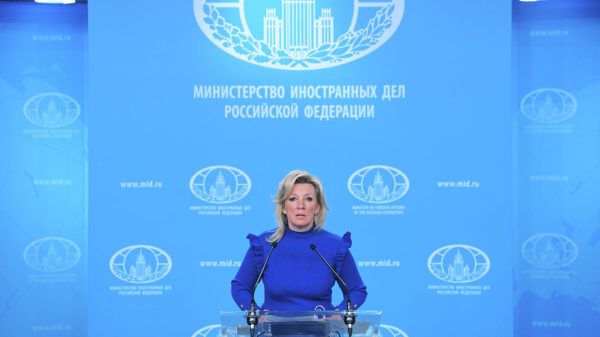 Jeremy Bowen told Behind the Stories that he was «measured all over the place»; and “was in no hurry to judge”; Photo: BBC
Jeremy Bowen told Behind the Stories that he was «measured all over the place»; and “was in no hurry to judge”; Photo: BBC
BBC international editor Jeremy Bowen admitted his coverage of the alleged Gaza hospital bombing was «wrong» but still said he had «no regrets» about his reporting.
Speaking in a television interview, the veteran reporter said he was wrong to suggest that Al Ahly Hospital was «levelled» by the October 17 explosion.
Stories about the explosion varied . a key flashpoint in the dispute over reporting on the war between Israel and Hamas.
The BBC's commitment to transparency is evident in a series of programs called Behind the Stories, in which Mr Bowen spoke and commentated.
BBC One's News at Ten, hours after the bombing was first reported, Mr Bowen said: “The missile hit the hospital shortly after dark. You can hear the impact.
“The explosion destroyed Al Ahli Hospital. It had already been damaged in a minor attack over the weekend. The building was destroyed.»
No 10 agreed with the Israeli version
The Israel Defense Forces (IDF) said the blast was caused by a misfired missile from the Palestinian Islamic Jihad group, and released images and intercepted messages to support its version. Hamas said an Israeli airstrike led to the explosion, which it said killed at least 500 people.
The British government later concluded that the Israeli version of events was most likely correct.
It was later revealed that the hospital building was not damaged and any explosion occurred in the car park, resulting in far fewer casualties than the first reports of 500 dead. The Anglican diocese, which runs the hospital, said the explosion killed 200 people.
Word of the incident disrupted US President Joe Biden's visit to the Middle East due to the cancellation of a summit in Jordan, where he was visiting. in connection with a meeting with Arab leaders.
In the ensuing 48 hours, rioting set fire to a synagogue in the central Tunisian town of Al Hamma and two Molotov cocktails were thrown at a synagogue in central Berlin.
A question about the report was answered in an interview with Behind The on Saturday. Stories on BBC News Mr Bowen said: «So it started, I guess, in the middle of the evening, and to answer your question, no, I don't regret anything about my reporting because I think I was measured everywhere. I was not quick to judge.”
Jeremy Bowen: «My reporting was wrong, but I don't regret anything or feel bad about anything» pic.twitter.com/ilUwuQAilZ
— Jake Wallis Simons (@JakeWSimons) November 25, 2023
Pressed further that the hospital had been “razed to the ground,” he said: “Oh yeah, well, I was wrong because I looked at the photographs and everything I could. You see, it was a square that seemed to be on fire on all sides, and in the middle there was some kind of emptiness. I think it was a drone shot.
“You know, we need to piece together what we see, and I thought, “It looks like the whole building is gone.”
“That was my conclusion from looking at the photos and I was wrong about that, but I don't feel particularly upset about it. It was just a conclusion that I reached.»
Mr Bowen said that sometimes the corporation has to «rely on what people say» and also look at «the many videos that have been released» before making a decision. judgment about what to report.
In the BBC's first hospital story on 17 October, correspondent John Donnison suggested that Israel was behind the bombing. Speaking shortly after 8pm on BBC News, he said: «It's hard to imagine what else this could really be, given the size of the explosion, other than an Israeli airstrike or multiple airstrikes.»
Initial BBC reports sparked complaints.
Mr Donnison's comments prompted the Board of Deputies of British Jews and the Campaign Against Antisemitism (CAA) to lodge a complaint with the corporation.
Tim Davie, director general of the BBC, referred the complaints to the Executive Complaints Unit (ECU), which reviewed them against «editorial standards of accuracy and impartiality».
However, the ECU ruled that Mr Donnison had not made a «final decision» but acknowledged that it was «not within the BBC's standards of due accuracy to offer any opinion on responsibility for the incident at a time when so little reliable information was available.»< /p>
Hadar Sela, co-editor Camera UK, told The Telegraph: «Anyone who was under the impression that the BBC had learned any lessons from its hasty blame on Israel for the Al Ahly hospital bombing on October 17 will understand from Jeremy Bowen's statements that they have, unfortunately, , are erroneous.
«Bowen's arrogant statement that he had 'no regrets' for misrepresenting the hospital building as being 'demolished' and his claim that he was 'in no hurry with judgment', even though he cited unverified third-party claims, is a sad testament to the level of BBC journalism demonstrated throughout this conflict.»


























































Свежие комментарии